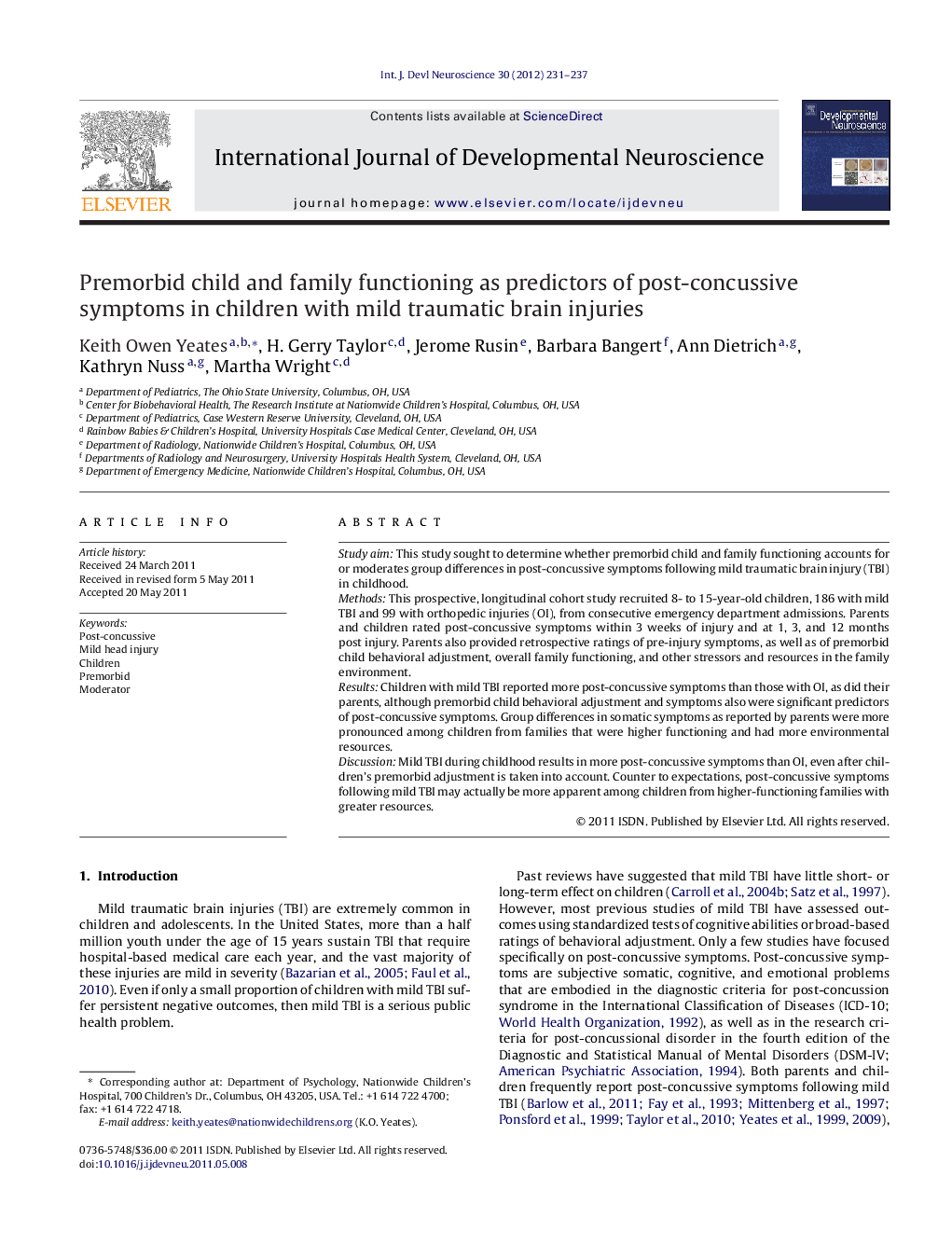| Article ID | Journal | Published Year | Pages | File Type |
|---|---|---|---|---|
| 2786235 | International Journal of Developmental Neuroscience | 2012 | 7 Pages |
Study aimThis study sought to determine whether premorbid child and family functioning accounts for or moderates group differences in post-concussive symptoms following mild traumatic brain injury (TBI) in childhood.MethodsThis prospective, longitudinal cohort study recruited 8- to 15-year-old children, 186 with mild TBI and 99 with orthopedic injuries (OI), from consecutive emergency department admissions. Parents and children rated post-concussive symptoms within 3 weeks of injury and at 1, 3, and 12 months post injury. Parents also provided retrospective ratings of pre-injury symptoms, as well as of premorbid child behavioral adjustment, overall family functioning, and other stressors and resources in the family environment.ResultsChildren with mild TBI reported more post-concussive symptoms than those with OI, as did their parents, although premorbid child behavioral adjustment and symptoms also were significant predictors of post-concussive symptoms. Group differences in somatic symptoms as reported by parents were more pronounced among children from families that were higher functioning and had more environmental resources.DiscussionMild TBI during childhood results in more post-concussive symptoms than OI, even after children's premorbid adjustment is taken into account. Counter to expectations, post-concussive symptoms following mild TBI may actually be more apparent among children from higher-functioning families with greater resources.
► We asked if premorbid function predicts post-concussive symptoms after pediatric mild TBI. ► We studied post-concussive symptoms in children with mild TBI and orthopedic injuries. ► Premorbid function is a predictor, but mild TBI still accounts for post-concussive symptoms. ► Somatic symptoms are higher in children from higher functioning families with more resources. ► Children from higher-functioning families may be more vulnerable to mild TBI.
